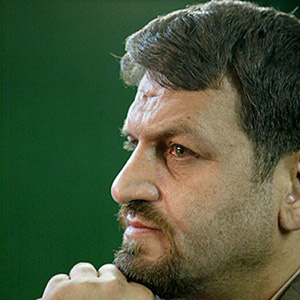Majles Has “A Certain Level of Tolerance”

IRD: During recent days, 122 MPs sent a letter of warning to Ahmadinejad objecting to his decision to appoint special diplomatic representatives. Tell us about the letter.
MK: I think Ahmadinejad’s decision was correct per se, but with two conditions: first, it had to be coordinated with the foreign ministry, and second, the appointees should have been seasoned diplomats. The current choices are really not suitable for the job. One who receives this post needs to have diplomatic experience, a record in the foreign ministry, and adequate knowledge about diplomacy and international affairs. Choosing inexperienced politicians, or people who have had tense relations with the foreign ministry, will serve us no good.
Also, according to Article 141 of the Constitution, the President, his deputies and ministers cannot hold more than one government position. This is another reason that Majles is against Ahmadinejad’s decision. Besides the 122 MPs who signed the letter, the committee for national security and foreign affairs also objected to his decision. However, the government believes in the appointees’ qualifications, and sees no necessity in consulting the foreign ministry.
IRD: Some observers are saying that Ahmadinejad is trying to put his coterie at the center of the diplomatic decision-making process and that he distrusts the diplomatic apparatus. Do you agree with them?
The backstage decision-maker for the appointment of special representatives is Esfandiar Rahim Masha’ee [Head of the Presidential Office], who also presides over the Supreme Council of Expatriate Iranians. The council is not in full agreement with the foreign ministry, so possible discord between Ahmadinejad’s special representatives and the foreign ministry would not surprise me. This is the core of the problem. Besides Ahmadinejad’s distrust in the foreign ministry, his bigger defect is his over-confidence in some of his close aides. Also, off-the-cuff decisions like this simply increase instability in policies. We saw the same thing when the government decided to withdraw the Fifth Bill of five-year development plan, and then reversed its decision.
IRD: MPs have warned Ahmadinejad, as well as the committee for national security and foreign affairs. Is Majles going to take another step?
Ahmad Tavakkoli [key Principlist MP] gave a hint a few days ago: Majles’ has a certain level of tolerance. We believe in constructive interaction with the executive branch, but the thing is that the government keeps breaching the law. The problem will be solved with the government’s further compliance with the law, ensha-allah.

